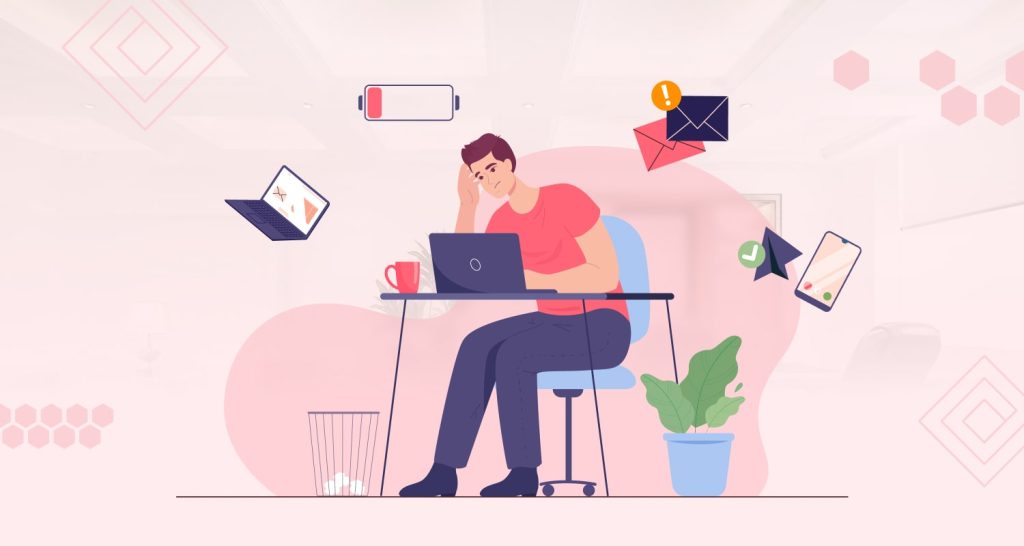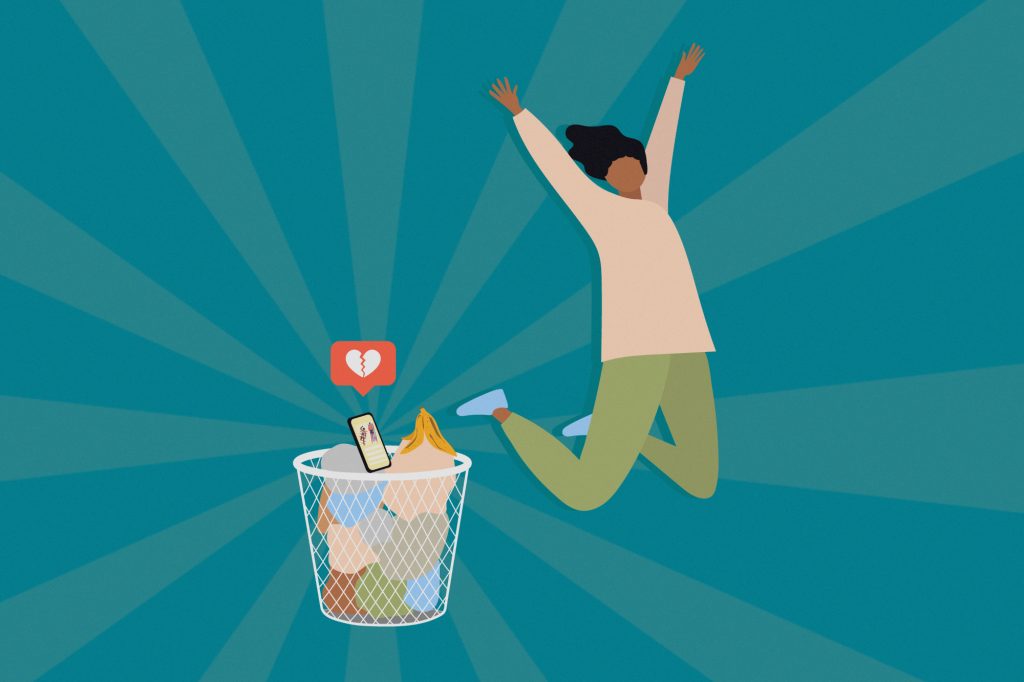Has it ever happened to you that you spent too much time online, maybe kept scrolling on a social media app or watching meaningless videos, and it made you feel overwhelmed, tired, and overall bad? I would be surprised if you would never experience such a situation. Too much time spent online increases stress and anxiety, but because the Internet can be quite addictive, it happens to most of us that sometimes we overdo it with our screen time a bit. Since the COVID-19 pandemic, the way we spend time online has visibly changed – the pandemic led to a shift from face-to-face communication and traditional in-person learning to online methods and distant communication. Our time on smartphones has increased by 76%, our time watching streaming shows increased by 57% and our time on social media went up by 47% as well. Our population started being a lot more reliant on the digital world, which has unfortunately led to higher levels of stress and burnout. It is true on one hand, that with the COVID-19 pandemic being mostly gone, many of the challenges that we faced at the time (such as online education and quarantine) have disappeared. However, many things did not go back to how they used to be. To put it simply, as a society, we got used to being a lot more present online.

Setting Boundaries in the Digital World
Nowadays with the possibility of reading world news daily, getting in touch with everybody within seconds, and receiving various political, social and economic updates online, it is more than logical that we can get easily overwhelmed and start struggling with things such as digital burnout. The important question is, what can we do to battle this problem?
1) Give yourself time! Instead of pushing yourself to reply to everybody on your phone right away (and interrupting potential real-life experiences you might be having), give yourself the time and space to reply when you have the capacity. To make it easier for yourself, you could come up with a designated time in your day to reply to communication that requires too much of your mental effort and leave the rest of your day without the pressure of replying.
2) Prioritize face-to-face communication. Try to see your loved ones in person whenever you can. Try to keep the things in life that can stay separate from the digital world and enjoy being present with those whom you care about.
3) Simplify your online presence by decluttering your digital life. Have a little look at your digital world and try to assess whether all the apps and websites you spend time on are necessary for your daily life. Spending time on a smaller number of platforms could lead to less overstimulation online and less screen time.
4) Step back from the distressing news. If you are sensitive to the distressing updates coming in from all around the world, don’t pressure yourself to keep up with everything. It does not make you ignorant if you feel like it is too much sometimes to expose yourself to various anxiety-inducing information.
5) Switch up the media. One of the reasons why being online can be so overwhelming is not only the mental toll it takes, but the physical as well – reading books or listening to podcasts instead of looking at a computer screen could significantly reduce eye strain and make us feel better overall.

These are just some of the many things that we can try to consciously do to prevent digital burnout. Digital media is unavoidably a part of our lives now, and it is therefore not always going to be easy to reduce its negative impact entirely. It is important, however, to prioritize our mental health and do what we can to protect ourselves from the heavy load that the media can bring us, even if the specific steps we take only feel like minor improvements sometimes.
Have you ever experienced digital burnout? And if so, what are your ways of dealing with this issue? Let me know in the comments!
References
Digital Burnout and Mental Health | McLean Hospital. (2022, August 15). https://www.mcleanhospital.org/essential/digital-burnout
McCarthy, E. (2021). The Growing Problem with Digital Burnout. Time to Log Off. https://www.itstimetologoff.com/2021/03/26/the-growing-problem-with-digital-burnout/
Mheidly, N., Fares, M. Y., & Fares, J. (2020). Coping with stress and burnout associated with telecommunication and online learning. Frontiers in Public Health, 8. https://doi.org/10.3389/fpubh.2020.574969



Yes! Indeed I have experienced digital burnout sometimes. And unplugging from screens, and practicing digital detox can help restore a sense of balance and prevent burnout. In one of my courses about communication, I was asked to cut off the internet for 24 hours, which raised my anxiety since I have relied on Google Maps so much to find the road and used online banking rather than a physical card. These habits have become crucial roles in my life. And I also think while technology has provided amazing convenience and opportunities, it is also important to remember that our well-being and mental health should not be compromised in the process.
I used to have social media (I only have Reddit now, does that count?), but in the past I was definitely wasting unhealthy amounts of time to social media, and it did affect my mental health. I pulled the plug out someday and never looked back. I know it is not for everyone, but I personally feel so much better quitting all of that. Reddit is enough for me to keep up to date without wasting too much time.
This has happened to me with Tiktok, after a while mentally catching up with its pace became a lot harder. I deleted the app because I was inclined to overuse and abuse it every time. What keeps people from distancing themselves from social media completely might be digital FOMO, but fear of missing out non-digital experience is valid too.